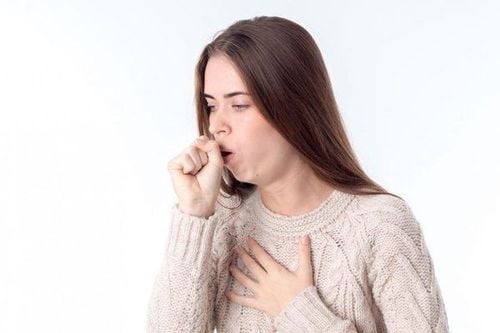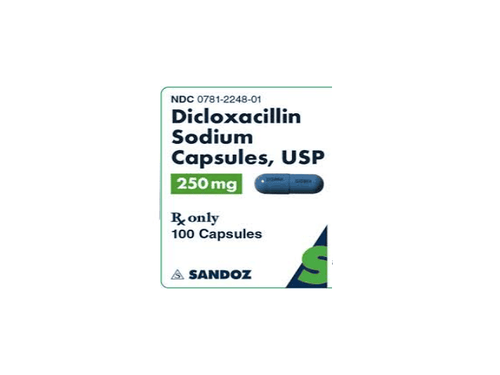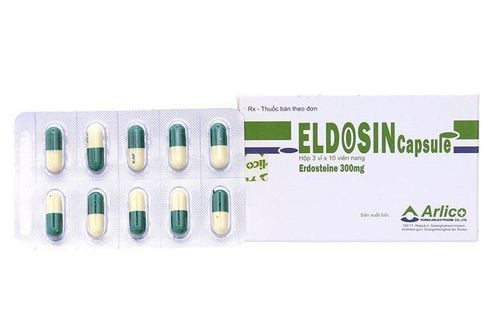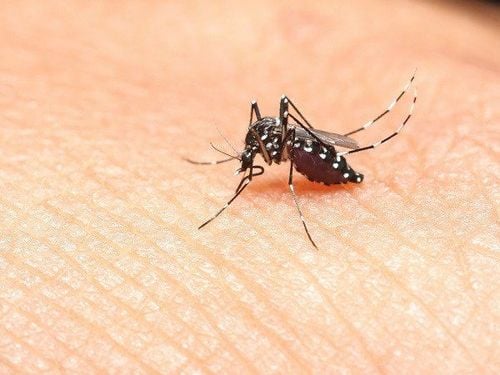This is an automatically translated article.
The article was professionally consulted with Master, Doctor Dang Xuan Cuong - Department of Emergency Resuscitation - Vinmec Hai Phong International General Hospital.Acute bronchitis is the sudden development of inflammation in the bronchial tubes, which are the passages that carry air into your lungs. It is caused by viruses, bacteria, or breathing in substances that irritate the lungs, such as cigarette smoke, smog, and air pollution.
Most symptoms of acute bronchitis last up to 2 weeks, but cough can last up to 8 weeks, affecting the patient's health and daily life. So, what do you need to do to prevent complications of acute bronchitis?
1. Symptoms of acute bronchitis
You will definitely have a cough and you may have many breathing problems, such as:
Chest congestion is a buildup of fluid and mucus in the lungs that causes symptoms such as: Pain, tightness in the chest, heaviness in the chest, discomfort, cough and difficulty breathing. Cough with a lot of white, yellow, or green sputum Wheezing or a whistling sound when breathing Body aches Fatigue Mild fever Runny, stuffy nose Sore throat. Even after other symptoms are gone, the cough can linger for several weeks while your bronchial tubes heal and reduce swelling.

Ho có nhiều chất đờm màu trắng, vàng hoặc xanh có thể là dấu hiệu của viêm phế quản
2. When does a patient need to go to a health facility for examination?
You need to go to a medical facility for examination and treatment in case:
Coughing up blood or thick or dark sputum Cough making it difficult to sleep at night Lasts more than 3 weeks Causes chest pain Cough makes it difficult to speak Weight loss Unknown cause Gastroesophageal reflux disease Fever over 38 degrees C Wheezing or shortness of breath Patient is over 75 years old and has a persistent cough.
3. Is acute bronchitis dangerous?
Acute bronchitis is usually mild and does not cause complications. Symptoms usually resolve on their own and lung function returns to normal. However, in some cases, repeated recurrences can infect other areas of the lung or make other co-morbidities more serious.
Some complications of acute bronchitis include:
Pneumonia : If you have bronchitis of any kind from acute to chronic then your lungs are more likely to become infected, leading to pneumonia . This is an inflammation of the lung parenchyma usually caused by bacteria, viruses, fungi, or other agents. Pneumonia is a particularly worrisome problem for the elderly, those with chronic medical conditions, or those who are immunocompromised, but it can also occur in otherwise healthy young adults. It is also the leading cause of death for children worldwide. The signs and symptoms of pneumonia are often very similar to those of colds and flu. Fever, cough, sputum production, chest pain, and difficulty breathing are common symptoms. Aspiration pneumonitis: A cough from bronchitis can cause you to choke on food if you cough while eating. This can cause food to enter the airways and down the lungs, but not the stomach. Aspiration pneumonia is a persistent infection that affects your health and takes months to recover from. Heart disease: The persistent shortness of breath of bronchitis can put extra strain on the heart leading to heart disease or make heart disease worse.
4. Prevention of complications of acute bronchitis

Hãy bỏ hút thuốc lá nếu bạn đang hút
To prevent complications of acute bronchitis, in addition to adherence to treatment, patients need to take a number of other measures to avoid aggravating symptoms and the disease to be quickly relieved.
4.1 Relieves the symptoms of the disease: There are two types of acute and chronic bronchitis. Acute bronchitis is more common and usually clears up on its own after a few weeks. Chronic bronchitis will come back or won't go away. Either way, you need to avoid exposure to lung irritants that lead to coughing:
Quit smoking if you are. To successfully quit smoking, talk to your doctor for advice and support to quit. Avoid smog, chemicals, secondhand smoke, and anything else that can irritate your lungs. If avoidance is not possible, try wearing a mask/mask. If cold air causes a cough or makes it hard to breathe, you'll also need to wear a mask to keep warm and avoid irritating your airways. Steam is also useful for thinning phlegm and will make it easier to cough up phlegm, making it easier to breathe:
Inhale the steam from a bowl of hot water. Take a hot shower. Use a humidifier, but be sure to clean it as directed to prevent bacteria and fungi from growing inside. 4.2 Care and treatment Drink plenty of fluids, especially water. On average, the patient needs 8 to 12 glasses a day to help thin the phlegm. However, if you have kidney or heart failure then you need to limit fluids because drinking a lot of water puts a strain on your heart and kidneys, so you should consult your doctor before you want to drink more water. Rest much. Use an over-the-counter pain reliever with ibuprofen (Advil, Motrin), naproxen (Aleve), or aspirin for pain relief. (Note: do not give aspirin to children). Read the medication guide and talk to your doctor before taking these medications if you have a stomach ulcer or kidney disease. In addition, the drug acetaminophen (Tylenol) is also used to relieve pain and reduce fever. 4.3 Prevention of acute bronchitis Get enough sleep. Sleep is very important for the body. Sleep helps the body release hormones and compounds that maintain the immune system to prevent disease. Avoid touching your mouth, nose, or eyes if you are around someone with bronchitis. Do not share glasses or dishes. Keep the body warm. Wash your hands often with soap, especially during the cold season. Do not smoke or avoid passive smoking. Follow a balanced diet to keep your body healthy. Get vaccinated against flu, pneumonia, and whooping cough. Limit exposure and wear a mask to avoid exposure to airborne irritants such as smog, chemicals, and other pollutants. Vinmec International General Hospital examines and treats respiratory diseases, head and neck tumors, congenital malformations in the ear, nose and throat area with the most optimal internal and surgical methods for patients, both children and adults. Modern equipment system, sterile space, minimizing the impact as well as the risk of disease spread.
Please dial HOTLINE for more information or register for an appointment HERE. Download MyVinmec app to make appointments faster and to manage your bookings easily.
References: Webmd.com, Verywellhealth.com and Healthline.com












